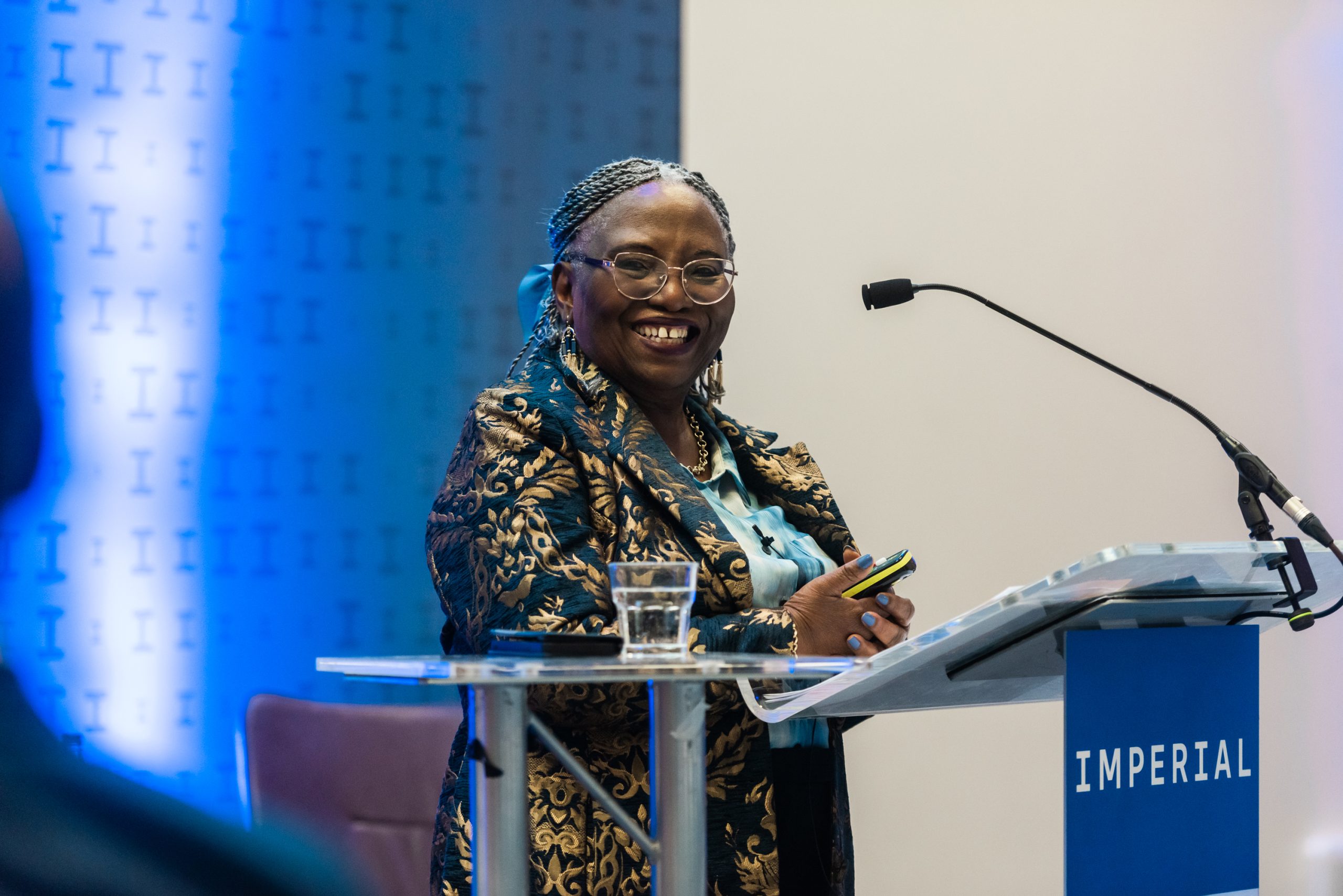On Thursday 7 November 2024, the Institute for Security Science and Technology (ISST) hosted its annual Vincent Briscoe Security Lecture.
This year’s speaker was Ambassador Yvette Stevens, former Permanent Representative of Sierra Leone to the UN. Ambassador Stevens is also an Imperial alumna, having graduated in the 1970s from the Department of Electrical Engineering (now Electrical and Electronic Engineering). She then went on to become Sierra Leone’s first female engineer before kickstarting her career at the UN.
Ambassador Stevens’ lecture, National security and resilience in the 21st century – the role of science and technology, is available to watch on the ISST’s YouTube channel.
In case you missed it, here are our key takeaways:
Development and security go hand in hand
Ambassador Stevens drew our attention to current challenges around access to electricity and energy security. She reminded us that there are still 675 million people living without access to electricity globally, with hundreds of millions more only having limited access. In a world where AI is quickly taking over everyday tasks and our knowledge of the universe is deepening from the billions being spent on space exploration, it is astounding that just 22% of people living in Sub-Saharan Africa have access to electricity.
With electricity comes economic development, opportunities and security for communities and individuals. Ambassador Stevens highlights that civil unrest occurring in African countries today can at least be partially attributed to people lacking what they need to thrive in modern life, an example of this being electricity. To help combat threats arising from within, nations should be finding ways to provide their populations with reliable and (where possible) green electricity to bring about the security and benefits to society that accompany it.
Preparing for pandemics – a priority
Ambassador Stevens could not have given this lecture without spotlighting COVID-19, one of the most devastating and recent threats to global security. The COVID-19 pandemic not only affected the health of populations but people’s livelihoods too. On a larger scale countries’ economies were also in crisis, the fallout of which caused disproportionately more suffering to lower income communities and minoritised ethnic groups within countries such as the UK and US.
It is widely regarded that nations did not prepare sufficiently for such a pandemic, even though health experts had forewarned governments (particularly in the UK). Models have predicted that over eight million deaths could have been prevented if effective vaccines had been available in the first three months of the pandemic.
It has taken a global pandemic to elicit the dangers of underprepared health systems. Governments should not wait for another to secure the health of their people and economies.
Regulating AI and autonomy in defence
Ambassador Stevens also spoke of the serious challenges presented by new technologies in defence applications. This includes, but is not limited to, AI and autonomous systems.
In the 2023 policy brief A New Agenda for Peace, UN Secretary-General, António Guterres, set out recommendations for “a legally binding instrument to prohibit lethal autonomous weapon systems that function without human control or oversight” and “to regulate all other types of autonomous weapons systems”.
Ambassador Stevens stressed that humans must be “in the loop” at every stage of defence; from early development and proof of concept, to use in the field. The consequences of autonomous weapons being used without clear, ratified regulations is already being seen in conflict. And, we are already being warned of the dangers unregulated AI and autonomous systems pose in civilian applications. Governments, militaries, the defence industry and other stakeholders therefore have an obligation to cooperate and develop measures to manage the use of these technologies in warfare.
The ISST’s annual Vincent Briscoe Security Lecture is given by an expert in security and resilience to an audience at Imperial. The talk typically explores the current security landscape and considers security challenges likely to affect society in the future. Previous Briscoe lectures have been delivered by a NATO Deputy Secretary General, former Director of GCHQ, former Commissioner of the London Metropolitan Police and a former Secretary of Homeland Security to President George W Bush. Watch the full series.
Ambassador Yvette Stevens is currently an Executive-in-Residence at the Geneva Centre for Security Policy. Read more about her career.
Photography by James Tye.
